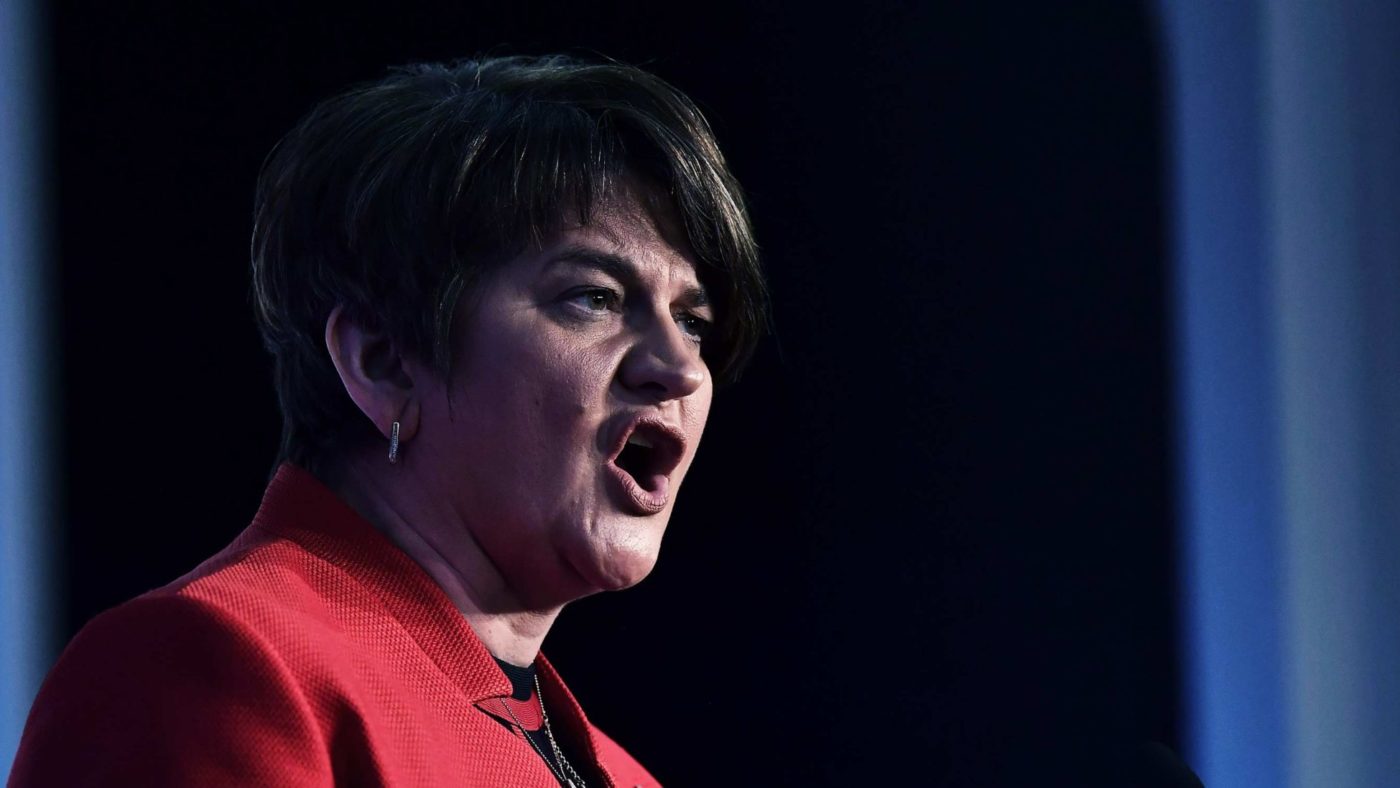If you want the UK to remain tied closely to the European Union, or you back Theresa May’s Withdrawal Agreement, you’re probably frustrated that opposition to the Northern Ireland backstop looks likely to result in “no deal” and could even mean a change of prime minister. If you support a harder Brexit, you might worry that avoiding an Irish Sea border will prevent us from making a clean break with the single market and customs union.
Either way, Northern Ireland can seem like an inconvenient problem-child in the Brexit debate, always preventing the rest of the country from making progress. It’s not surprising that the views of unionists, who are most likely to be concerned about the effects of the backstop, are often misrepresented by people furious with their habit of thwarting the latest plan for Brexit.
Critics of the DUP, who don’t understand its motivations, sometimes claim that it wants a “hard border” in Ireland, or to “drive a wedge” between London and Dublin. Such arguments rely on ignoring everything the party’s representatives have said about the subject and depicting its supporters as irrational fanatics, who are prepared to disrupt their own lives in order to inconvenience nationalist neighbours.
Other pundits apparently believe that Northern Irish unionists are irreconcilables, who won’t accept any Brexit deal and aren’t prepared to compromise to achieve one. That’s a misleading caricature. In mainstream unionist parties in Northern Ireland, there are advocates for practically the entire spectrum of outcomes, from a second referendum, to a soft Brexit on the Norway plus model, to exiting tomorrow on WTO terms.
Most pro-Union people in Ulster want a deal and are prepared to contemplate nearly all the options. They just won’t accept being treated entirely differently from the rest of the UK, separated from its economic and political life and placed under the jurisdiction of decision-makers over whom they have no control. That isn’t a hard-line position; or an unreasonable one.
Imagine if the “price” that the EU demanded for Brexit was that a sizeable part of England — one that voted Remain — should become part of a backstop that would probably prevent it from leaving the single market and the customs union with the rest of the country. As a convenient example, we might choose three adjacent areas in Yorkshire — Harrogate, Leeds and York — some of the few parts of the north that favoured staying in the EU.
In order to ship goods into this area, companies from the rest of Britain would have to complete a declaration, because, legally, it would be considered a “third country”. The government would pledge that, in the short-term, the rest of the UK’s rules would match the regulations in this territory — determined by the authorities in Brussels — but future administrations would not be bound by this commitment. They’d ask the three Yorkshire districts to remain in the EU customs union while everyone else left to form part of a looser arrangement. The government would then insist this amounted to a great deal, that avoided a customs border.
Obviously, this counterfactual is absurd and no prime minister could ever agree to it. Indeed, that was the type of language that Theresa May used initially when a similar proposal was advanced for Northern Ireland. Subsequently, she accepted the EU’s plan practically in its entirety, with a few cosmetic changes and tweaks to the language, so she could deny that she was crossing her own “red lines”.
The prime minister spent two weeks touring the country to promote the message that her Withdrawal Agreement was the only outcome that could prevent a “no deal” Brexit. Unfortunately for Theresa May, the British people didn’t subject its representatives to relentless pressure to vote for her plans. After all, hadn’t May said much the same about her Chequers proposals?
Rather than face a humiliating defeat in the House of Commons, the vote on the Withdrawal Agreement was delayed and we’re waiting to discover whether the Parliamentary Conservative party will return a vote of no confidence in its leader. Mrs May says she will ask for “further assurances” from Brussels that the backstop will not become a permanent arrangement, to assuage her critics. Yet, ominously, she insists that the Withdrawal Agreement contains all the comfort that should be needed, and she has dodged questions about whether any changes will be legally binding.
Even if Theresa May avoids a leadership contest and coaxes from the EU a form of words to mollify Tory backbenchers, unionists will still be asked to rely upon unenforceable promises, at a time of political chaos, secured by a prime minister who has appeared anything but confident, dependable or secure in her job.
Nobody denies Northern Ireland is very different from parts of Yorkshire — geographically, culturally and historically. Its place within the United Kingdom has been challenged by a relatively recent campaign of terrorist violence and nationality here is still a combustible political issue. Yet, the Good Friday Agreement is supposed to be underpinned by a “principle of consent” that determines the province will remain British until a majority of its voters determine otherwise, through a border referendum.
If Northern Ireland cannot leave the EU on the same terms as the rest of the country, or at least as near as makes no difference, then its people did not participate in the vote on the same terms as electors in Great Britain. The EU referendum was a UK-wide poll, with the nation acting as a single electorate. If that mandate is unravelled, the idea of the UK as a sovereign, unitary state is effectively destroyed.
That’s a fundamental constitutional point that should concern the whole country; not just unionists in Northern Ireland.


